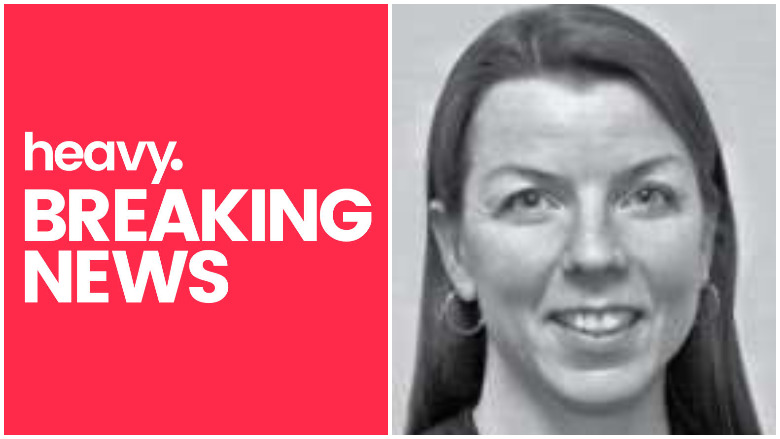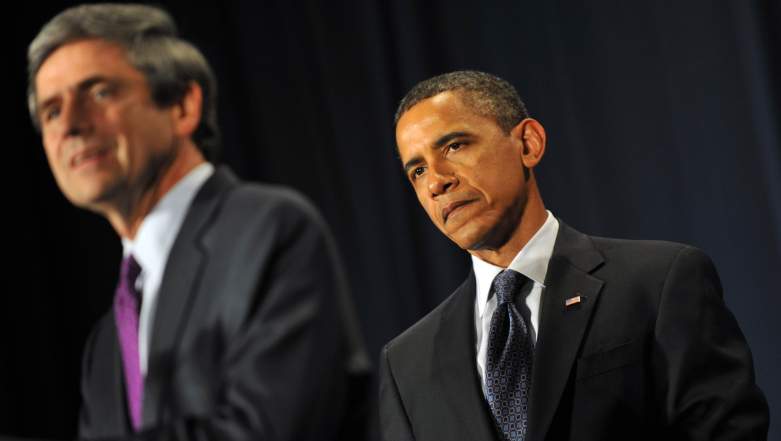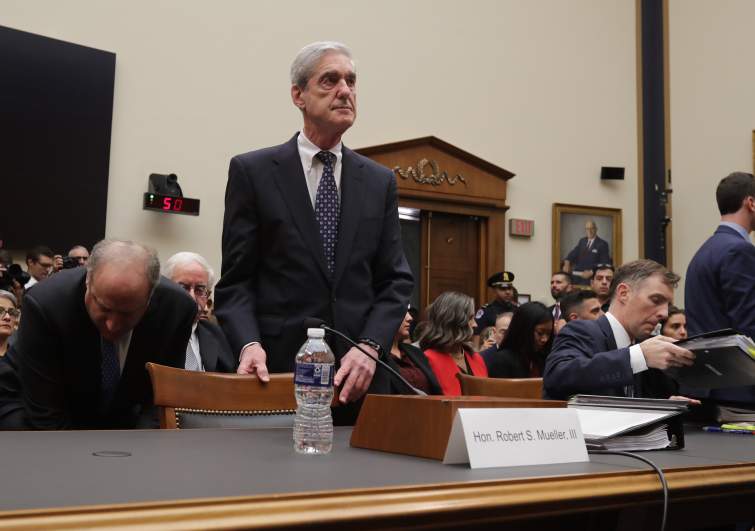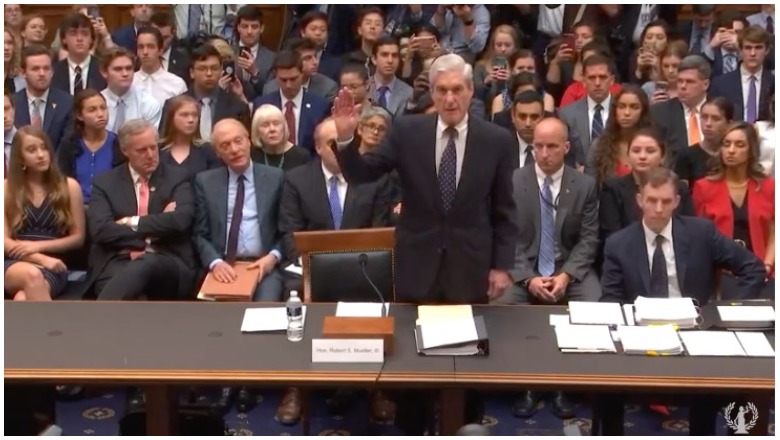
Catharine Easterly, an Associate Judge of the District of Columbia Court of Appeals, is married to Aaron Zebley.
Robert Mueller, the special counsel in the Russia investigation, brought Zebley to his appearance before Congress. “Aaron Zebley was the Deputy Special Counsel and had day-to-day oversight of the investigations conducted by the Office. He will accompany Special Counsel Mueller to the Wednesday hearings, as was discussed with the committees more than a week ago,” said Mueller spokesman Jim Popkin to CNN. Trump railed against Mueller and Zebley before the hearing.
According to CNN, Zebley “represented former Hillary Clinton aide Justin Cooper, who helped manage her private server.”
At the time of her 2011 nomination, Easterly was described by the White House as “an attorney in the Special Litigation Division of the Public Defender Service for the District of Columbia. She litigates complex, recurring criminal justice issues in the Superior Court of the District of Columbia.”
Here’s what you need to know:
1. Zebley’s Wife Was Nominated to the Bench by President Barack Obama

GettyPresident Obama.
Catharine Easterly received her seat on the bench due to a nomination from Democratic President Barack Obama.
In her nomination hearing before a United States Committee, she thanked Obama.
“Mr. Chairman, I am grateful for the opportunity to appear before you today as a nominee to be an Associate Judge on the District of Columbia Court of Appeals,” she said. “I want to thank President Barack Obama and the District of Columbia Judicial Nomination Commission, in particular, its chair, the Hon. Emmet G. Sullivan, for this honor.”
In the press release announcing her nomination, Obama said of Easterly: “Catherine Easterly has proved herself to be not only a first-rate legal mind but a faithful public servant. It is with full confidence in her ability, integrity, and independence that I nominate her to the bench of the District of Columbia Court of Appeals.”
2. Easterly Says Her ‘Abiding Interest’ Has Been to ‘Promote Fairness of Process in Our Justice System’
In the nomination hearing, in 2011, Easterly gave a sense of her guiding values.
“Throughout my career, my abiding interest has been to work to promote fairness of process in our justice system, particularly for those least able to advocate for themselves,” she told the committee.
“After graduating from law school, I worked for almost 5 years as an appellate public defender in New York City. I then moved to a law firm where I focused on civil litigation.”
In 2013, she joined the Special Litigation Division of the Public Defender Service for the District of Columbia. There, she said, she had “the unparalleled opportunity to apply my skills as an appellate defender and a civil litigator, and to identify and address complex, recurring issues that affect the fairness and efficiency of the District’s criminal justice system.”
She added: “Putting the sum of my experiences here to use as a judge on the Court of Appeals, in service of the District of Columbia community, would be an honor and a privilege.”
3. Catharine Easterly Has Two Children & Was Born in Boston

GettyFormer Special Counsel Robert Mueller arrives before testifying, along with former Deputy Special Counsel Aaron Zebley.
During her nomination, Easterly was accompanied by her husband Aaron Zebley, daughters Clara and Daphne, parents, her sister and two brothers.
“I would not be here today without their support and guidance,” she said. She gave her full name as Catharine Friend Easterly, and said she was known by friends and colleagues as Kate Easterly.
The Boston-born Easterly told the committee she was married to Aaron Zebley, describing him at that time as chief of staff to the Director of the Federal Bureau of Investigation.
4. Easterly Attended Yale & The University of Virginia

House Judiciary CommitteeAaron Zebley is seated with Robert Mueller today.
Easterly graduated in 1996 from the University of Virginia School of Law in Charlottesville, Virginia. She also has a history degree from Yale University, receiving that Bachelor of Arts degree in 1992.
She attended St. Catherine’s High School in Richmond, Virginia. In college, she worked during summers for the Public Defender Service for the District of Columbia and the Legal Aid Society of the District of Columbia. She also worked for the Maryland Office of the Public Defender.
She also practiced law alone for a year, with her primary client being the Metropolitan Opera. She belongs to the National Association of Criminal Defense Attorneys. She has written various articles over the years about things like eyewitness reliability.
5. Easterly Was a Registered Democrat at the Time of Her Judicial Nomination

Aaron Zebley. (WilmerHale)
For the first four and a half years of her career, she worked as an appellate public defender in New York, where she “briefed and argued appeals in the intermediate and highest appellate courts in New York State.”
She then entered private practice for a firm called Stillman & Friedman, P.C., focusing on civil matters and pretrial litigation. She worked on “white collar criminal cases.” She moved to the District of Columbia when her husband was transferred there by his employer.
She then worked as a public defender, arguing appeals and litigating civil suits, “raising issues that affect D.C. defendants, detainees, prisoners, and civilly committed persons,” according to the nomination hearing transcript.
Her typical former clients “have been indigent individuals who are either facing criminal prosecution or have been convicted of a crime.”
Under cases she’s been involved on, she filed an amicus brief in a case in which the Supreme Court “clarified the scope of the Sixth Amendment right to Confrontation by holding that, if the prosecution wishes to rely on a lab report, it must call the analyst/author of the report to testify in its case-in-chief.”
She did not list any political affiliations but said in 2011 that she was “registered as a Democrat. I have not held any office in any political party nor have I rendered any services to any political party of election committee during the past ten years.” She noted that she and her husband were accused of being “illegal holdover tenants” in a property dispute in 1999. The action was later terminated with the legal counsel for the other side acknowledging that “the action was the result of poor record keeping by his client’s predecessor.”
